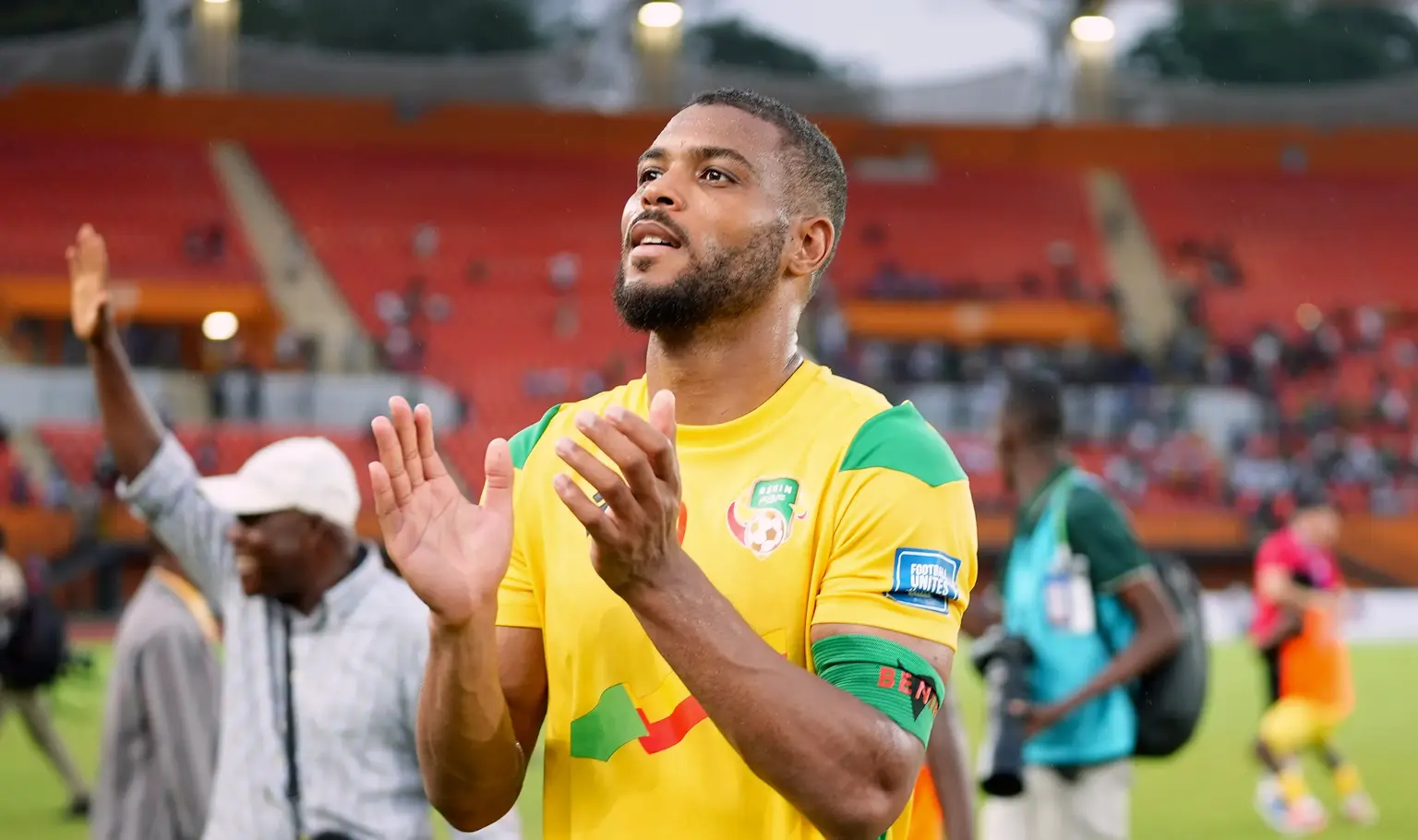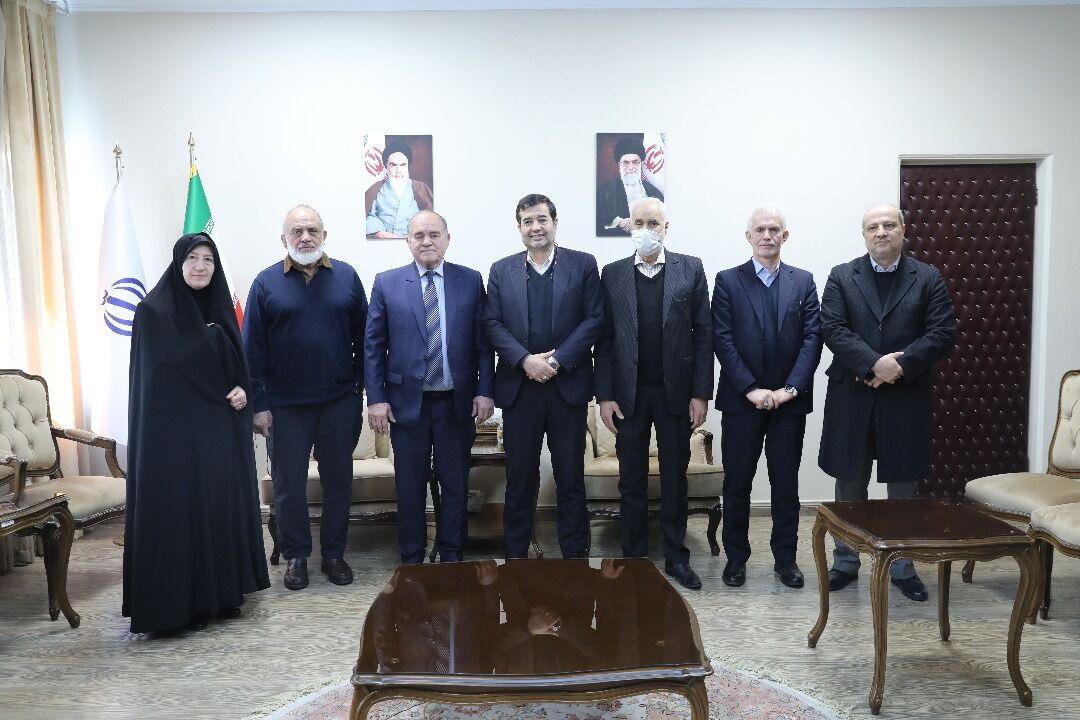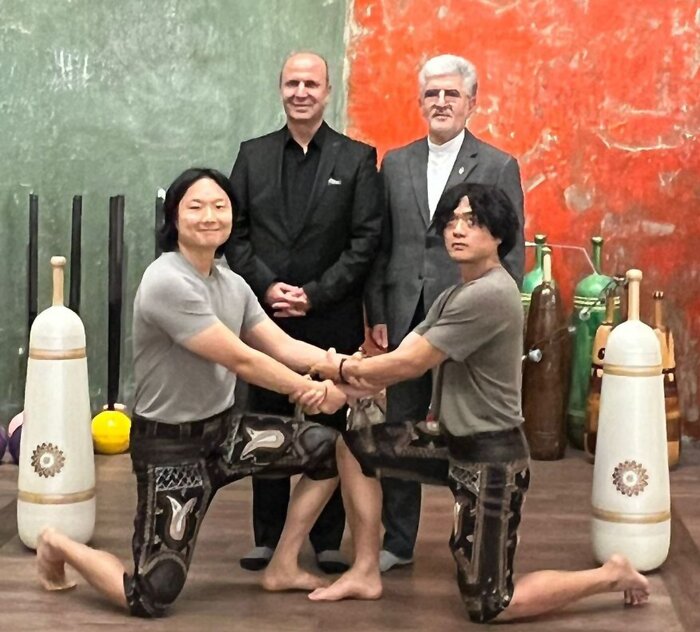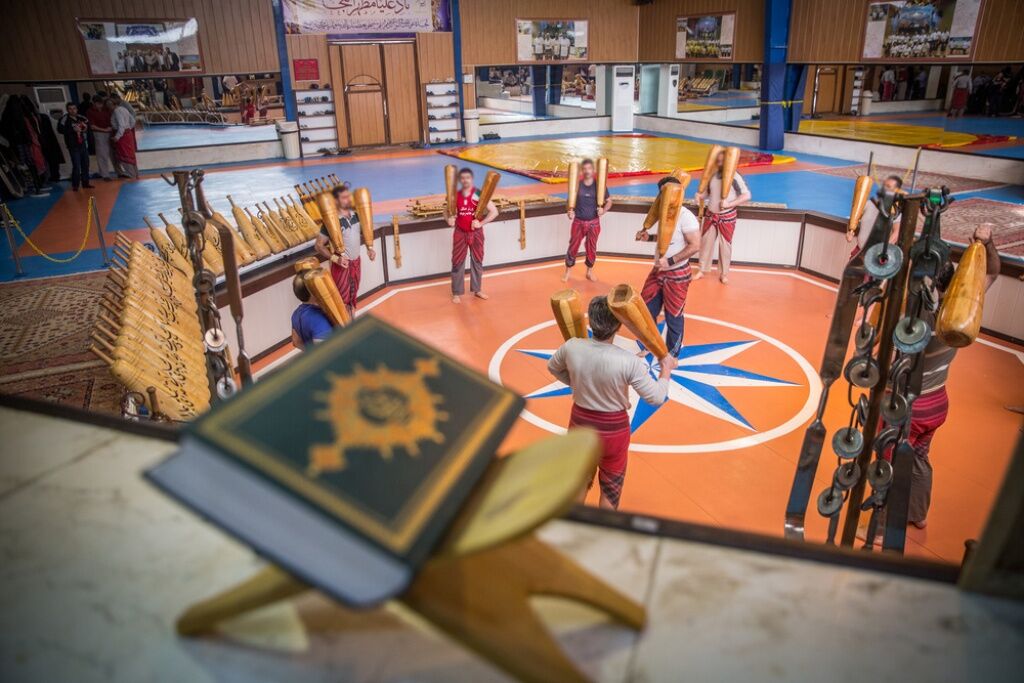As the old adage goes, “actions speak louder than words”. In November 2023, when Benin’s qualifying campaign for FIFA World Cup 26™ got under way, head coach Gernot Rohr told FIFA that there would be “some dark horses” and that Benin were counting on “being one of them”.
Almost a year on from that interview, his prediction has come to fruition, thanks in particular to the performances of Steve Mounie, the team’s captain. With two goals in the first four matchdays, the 30-year-old – who hails from Parakou – embodies Benin’s resurgence on the international stage.
Following the departures of Stephane Sessegnon and Khaled Adenon, the former Brest forward inherited the captain’s armband and is bringing a new dynamic to a team capable of shaking things up on the African continent, as they demonstrated last June with their 2-1 victory over Nigeria, runners-up in the 2023 Africa Cup of Nations.
“As long as we keep this mindset, anything will be possible,” said Mounie in an exclusive interview with FIFA. “World Cup qualification is not just the aspiration of 22 players, but that of an entire nation, which we are well aware of.”
Benin are sitting third in Group C, level on seven points with both Rwanda and South Africa. How would you assess the first four matches of qualifying?
Steve Mounie: We have failed to qualify for the last two CAF Africa Cup of Nations tournaments – a failure that has left us devastated, but also spurred us on to perform well in this qualifying campaign for the next World Cup. After a tricky start against South Africa, when we lost 2-1, we bounced back with a 1-0 win against Rwanda and a 2-1 win against Nigeria. These victories bode well for the future.
How did it feel to score against South Africa and then the winner against Nigeria?
I’m feeling in fine form, and above all I’m driven by my mission, which is to lead my country to the World Cup. I am fully convinced that this is achievable. But I can’t reach these performance levels on my own; it’s also important to give credit to the team. Our journey so far is the result of a collective effort.
How would you describe the group?
What I love about our team is the trust we place in each other. This has been crucial for getting our qualifying campaign off to a good start. We all know that we have the potential to achieve great things, which is what motivates us to focus on our World Cup qualification ambitions. I’d also like to emphasise that we’re all good at implementing what we practise on the training ground; everyone plays their part, which has enabled us to produce some stellar performances so far. But we can’t get complacent. Although our victory over Nigeria was a major coup, we must strive to achieve even more.
Let’s talk about the change of nickname: How did you feel about going from the Écureuils (Squirrels) to the Guépards (Cheetahs)?
Pretty good! Our new nickname shouldn’t make us forget our past and what our predecessors, the Écureuils, achieved. They managed to make me feel proud of wearing the colours, and every time I meet the veterans, they talk about passing down our culture to future generations. Whether we are Écureuils or Guépards, we’re all Beninese above all else, united under the same flag that lifts us up every time we play to defend our national pride. Today, our mission as the Guépards is to write our own chapter in history and take part in the most prestigious football competitions.
What does the role of captain mean to you?
Being appointed captain is a real honour. When I first started playing for the national team, I never thought I would one day wear the captain’s armband. It involves a commitment to setting the standards. Not only do I have to be a role model for my team-mates who put their faith in me, but also for my family and the people of Benin. This role brings out the best in me and helps me open up to others.
Gernot Rohr previously coached Nigeria to a World Cup. Have you had any conversations with him about this? If so, what has he told you?
Absolutely! (laughs). He often talks about this part of his career and highlights the major impact it had on him. Just hearing his story motivates us to want to be part of it. Having a coach who has experienced the highs and lows of our sport, who shares his stories and is fully committed to sharing this experience with our group is a really wonderful opportunity.
What would World Cup qualification mean to Benin?
That would be crazy! (pauses). Hmm, I don’t dare even contemplate it! The country would be in a state of euphoria. Benin qualifying for the World Cup would lead to a huge celebration lasting for days.
What are your fondest memories of the World Cup?
When I think of the World Cup, the first thing that comes to mind is the image of South Africa’s Siphiwe Tshabalala dancing after scoring the opening goal of the 2010 edition on home soil. This was a milestone for African football because it was the first goal in World Cup history to be scored on the African continent. It was simply magnificent.
Then there was Luis Suarez’s handball against Ghana at that same tournament – a painful memory shared by many Africans. The 2010 Ghanaian team had a mesmerising style of play and put in a truly remarkable performance on football’s biggest stage. Finally, how could we forget Kylian Mbappe’s incredible hat-trick against Argentina in the final in 2022.
- نویسنده : محمد مهدی اسماعیلی رها





























Friday, 30 January , 2026